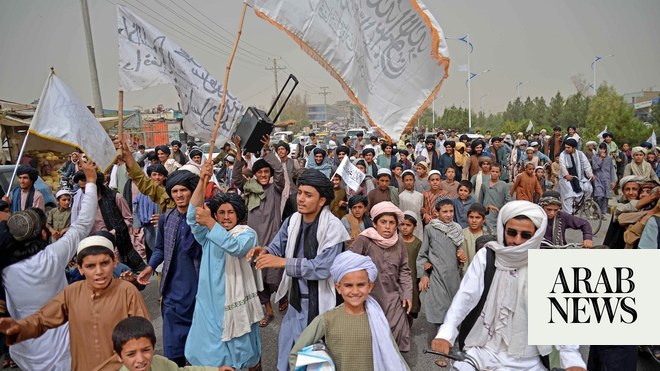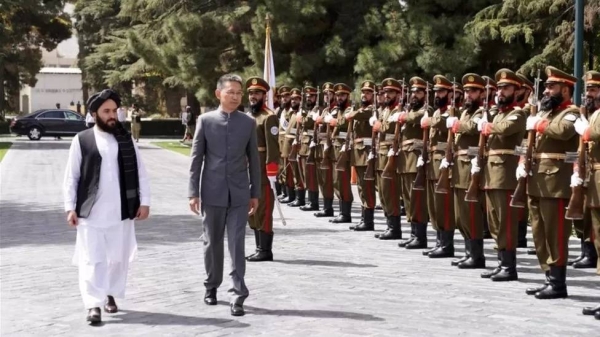
KABUL: Taliban authorities were set to celebrate the third anniversary of their takeover of Afghanistan on Wednesday, with a military parade at a former US military base and festivities in key cities.
Extra security was deployed in the capital Kabul and the Taliban’s spiritual home of Kandahar ahead of the “day of victory,” with Daesh group attacks a continued threat in the country.
Taliban forces seized Kabul on August 15, 2021, after the US-backed government collapsed and its leaders fled into exile. The anniversary is marked a day earlier on the Afghan calendar.
“The Day of Victory is historically a significant and proud day for the Islamic Ummah (nation), and particularly for the Afghan people,” said Prime Minister Mohammad Hassan Akhund in a statement on Tuesday.
“On this date, Allah granted the Mujahid nation of Afghanistan a decisive victory over an international arrogant and occupying force.”
In the three years since they ended their 20-year insurgency, the Taliban government has consolidated its grip on the country, implementing laws based on its strict interpretation of Islam, even though it is still unrecognized by any other state.
Their restrictions on women, who bear the brunt of policies the United Nations has called “gender apartheid,” remain a key sticking point.
The days before the celebrations, workers were busy putting up banners and billboards reading “Congratulations” with the anniversary date around Kabul.
Vendors selling flags of the Islamic Emirate of Afghanistan — the Taliban government’s formal name for the country — dotted the city, the white and black standard also fluttering over streets.
A military parade and speeches were to be held at the Bagram air base, the US military’s former center of operations in Afghanistan, around 40 kilometers (25 miles) outside of Kabul.
Celebrations featuring athletes and poetry readings were due to be held in the capital.
Heavy security and decorations also went up in the southern city of Kandahar — the birthplace of the Taliban movement and home to the reclusive leader Hibatullah Akhundzada, who rules through religious edict.
Security has been a key priority for Taliban authorities, and while many Afghans express relief at the end of 40 years of successive conflicts, the economy remains in crisis and the population mired in a worsening humanitarian crisis.
A joint statement from international non-governmental groups warned of the growing aid funding gap to the country, with 23.7 million people in need of humanitarian assistance.
Human Rights Watch (HRW) reiterated calls for pressure on the Taliban government to lift restrictions on women, who have been squeezed from public life and banned from secondary and higher education.
“The third anniversary of the Taliban’s takeover is a grim reminder of Afghanistan’s human rights crisis, but it should also be a call for action,” said Fereshta Abbasi, Afghanistan researcher for HRW.












